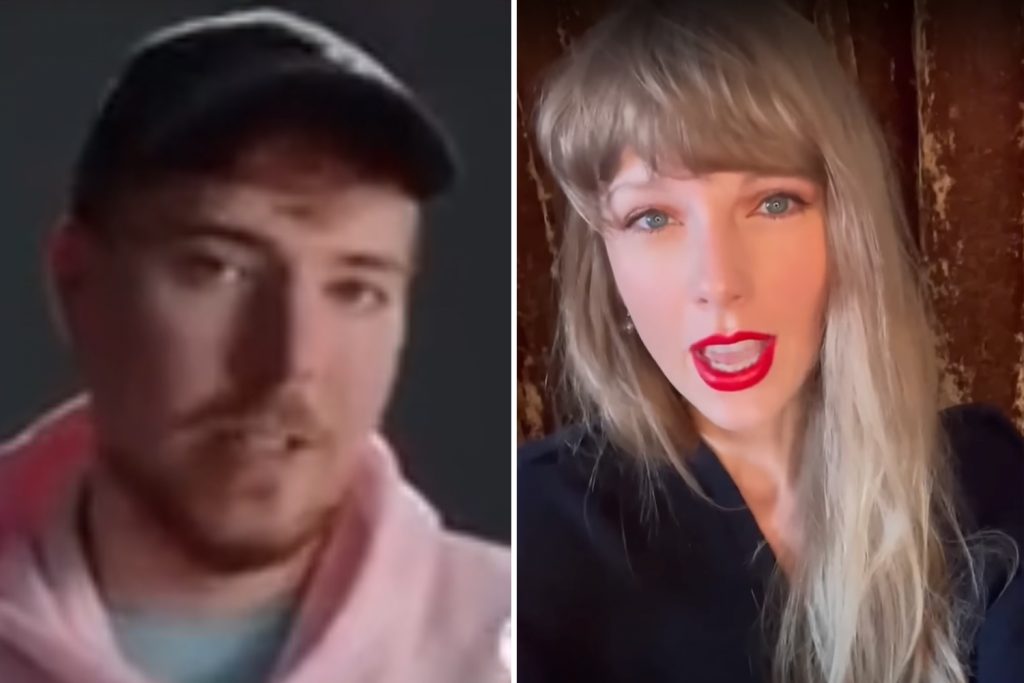AI-generated clones of celebrities are taking over social media — and they’re being used to sell scams.
According to a new report from 404media on Tuesday, clones — or deepfakes, as they’re called — of public figures including Joe Rogan, Taylor Swift, Steve Harvey, Ice Cube, Andrew Tate, Oprah and Dwayne “The Rock” Johnson are being used in scam advertisements on YouTube.
According to the tech outlet, these YouTube ads use celebrities’ likenesses to encourage viewers to visit unsafe websites and share personal financial data, under the guise that they can receive benefits such as stimulus checks and government subsidies.
One ad identified as a scam by 404media features a poorly created deepfake of Taylor Swift, speaking directly to a cell phone camera and promising viewers $6,400 from “the state.”
“Hi guys, it’s Taylor Swift. Remember those stimulus checks? Well there’s a new thing going viral. The state is giving these $6,400 holiday packages to cover all your bills,” the Swift deepfake says.
“Just visit the website, answer two quick questions, and a representative will handle the rest. Then you’ll get your stimulus package in like two or three days. I left the link below so you can claim yours too,” the ad finishes.
Another ad, featuring clips of Steve Harvey interlaced with other generic shots of people on their phones, claims to offer a federally funded card worth $6,400 that refills every month.
“Click here if you’re ready to make a change this new year,” the Harvey deepfake says in the clip. “This GHSA program is your golden ticket to bounce back in 2024, offering monthly funds for all eligible Americans.”
Although scams such as these go strictly against YouTube’s policies (“YouTube doesn’t allow spam, scams, or other deceptive practices that take advantage of the YouTube community. We also don’t allow content where the main purpose is to trick others into leaving YouTube for another site,” YouTube’s policy reads), few of the ads have ever been removed from the video-sharing site.

Tons of social media users have been repeatedly calling out the platform and discussing how best to prevent these ads from scamming YouTube viewers.
“I keep getting adds [sic] on YouTube about various stimulus checks the US government is supposedly releasing. This just sounds too good to be true,” one Reddit post from June 2023 about the phenomenon reads.
“Just bumped into an AI generated scam ad in the wild. YouTube video ad using Biden’s voice to tell people about some free stimulus check if you follow whatever link,” another user wrote on X (formerly Twitter) in May 2023. “Tell your family about AI, Google and others sure as hell won’t vet their ads for scams so it’s on you.”
These scams aren’t unique to actors and hosts, either — influencers such as MrBeast and executives such as Elon Musk have been outspoken about wanting to get rid of these ads because of the harm they cause to audiences.
“Lots of people are getting this deepfake scam ad of me… are social media platforms ready to handle the rise of AI deepfakes?” MrBeast (real name Jimmy Donaldson) wrote back in October, after a scam deepfake of him was served to viewers on YouTube. “This is a serious problem.”
In the case of these false government subsidy ads, 404media discovered from a tip that as many as 16,000 ads collecting information under the guise of offering government subsidies link back to companies including Mantilla Marketing, Idea Clan Inc., LOOKFINITY LTD and MILKIT OU.
In a statement to The Messenger, a Google spokesperson said that the company was working to remove some of the ads featured in the investigation.
“We are reviewing the ads shared with us and have already removed several for violating our policy against clickbait and sensationalist tactics,” they said. “We’ve also taken appropriate action against the associated accounts. We are constantly working to enhance our enforcement systems in order to stay ahead of the latest trends and scam tactics, and ensure that we can respond to emerging threats quickly.”
While many social media users are still calling on YouTube to take action against these harmful scams, government bodies like the Department of the Treasury are warning individuals to be careful about what sites they visit.
“If you receive calls, emails, or other communications claiming to be from the Treasury Department and offering COVID-19 related grants or stimulus payments in exchange for personal financial information, or an advance fee, or charge of any kind, including the purchase of gift cards, please do not respond,” the department warns. “These are scams.”
Scams such as these can be reported to the Federal Trade Commission (FTC) on their website.
